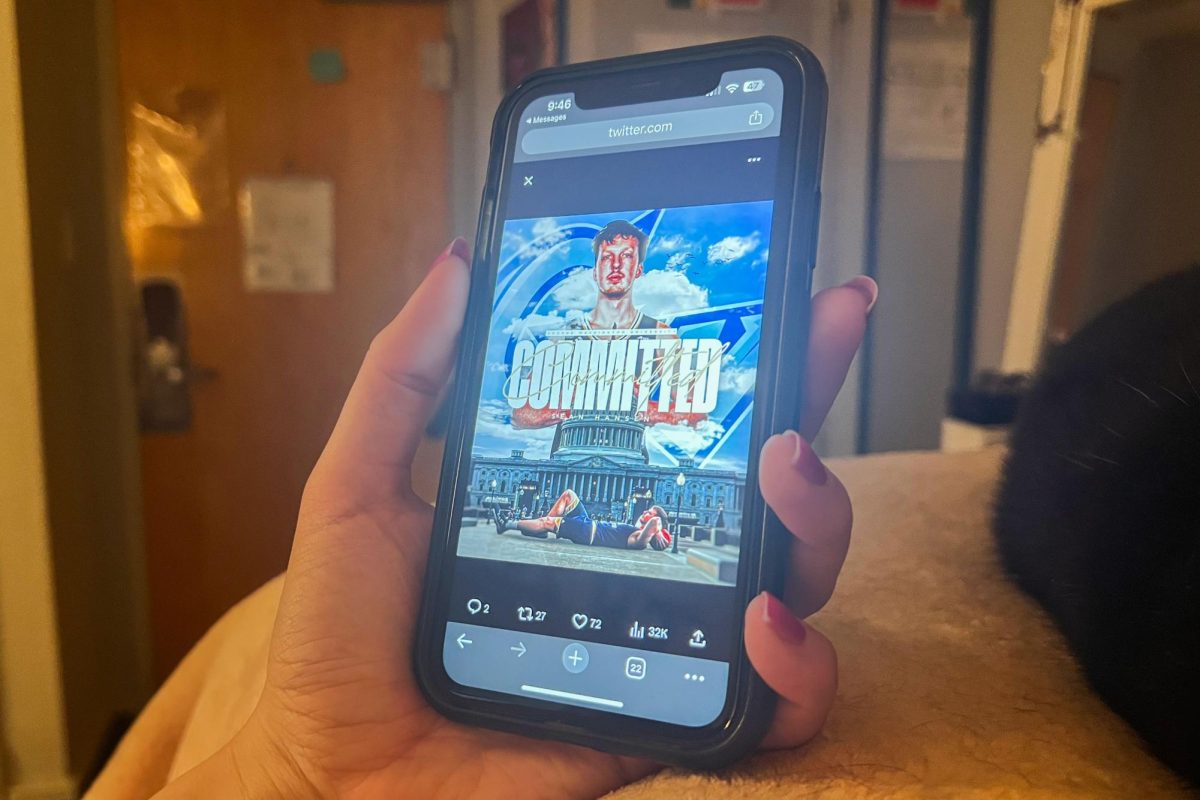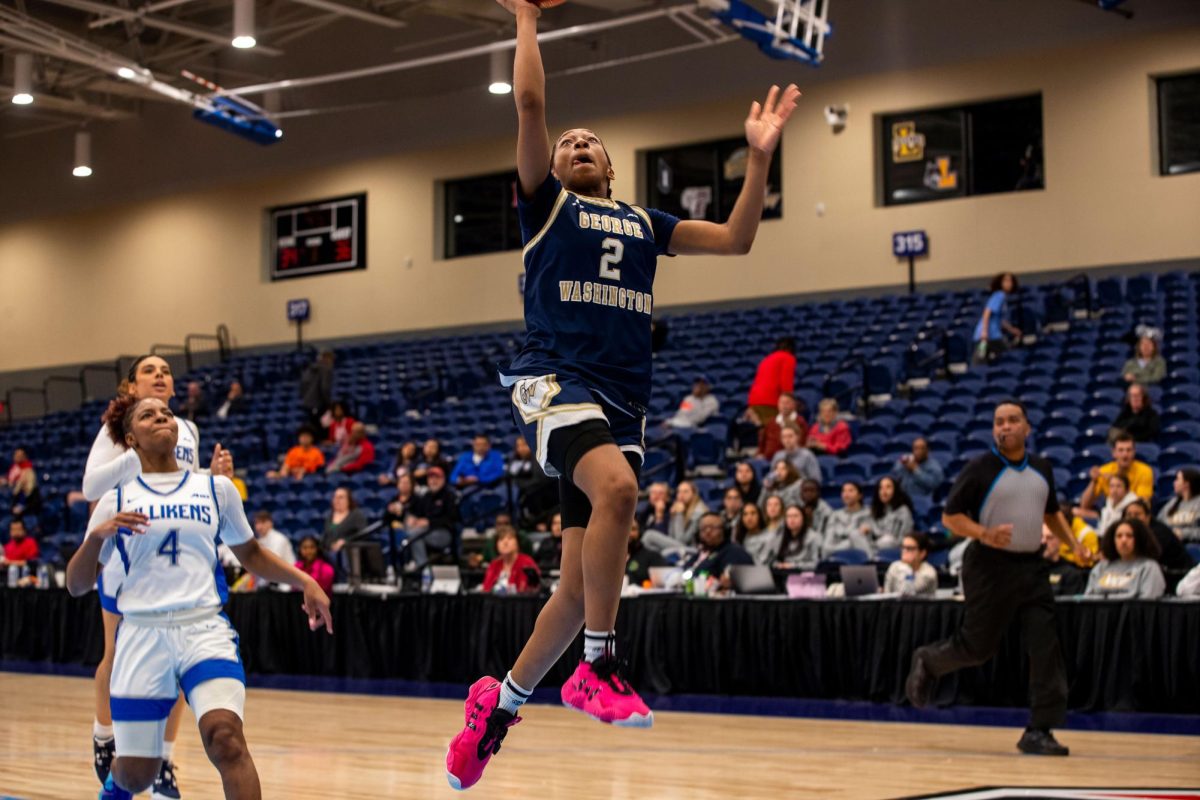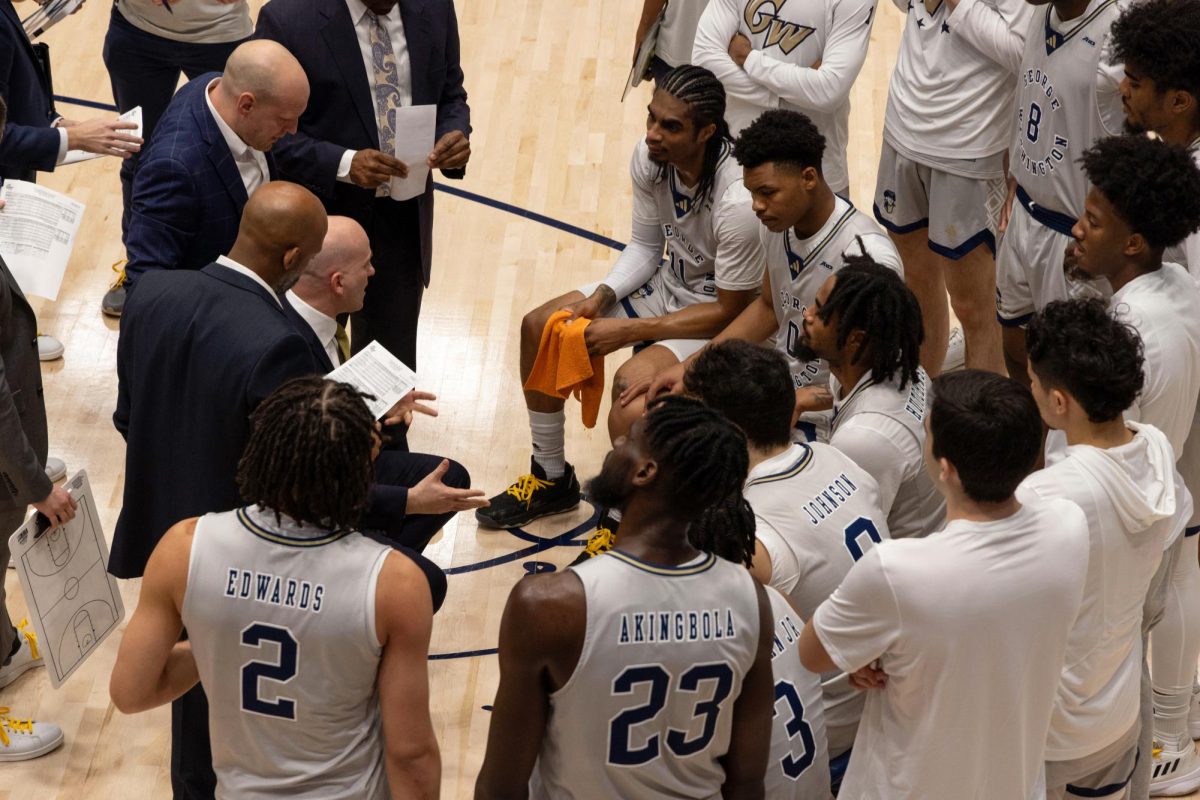
Brett Else was just about to pick up the phone to commit to GW when Adam Foley, then the assistant coach of the men’s water polo program, called him.
Foley told him that then-head coach Scott Reed was being let go and that the program would begin a search for a new coach. Else still wanted to go to GW, so he stuck with his decision with hopes that Foley would fill in that vacancy.
He got his wish in April, when Foley was named the head coach of both the men’s and women’s programs. His first full season with the men’s program, one dedicated to starting the team’s rebuild and overhauling its attitude, began last weekend at the Bruno Classic.
“We’re just trying to really focus on creating a new environment,” Foley said. “Getting enthusiastic, really getting after it, in terms of always competing and trying to foster as much competition as possible.”
The team went 1–3 to start the season, opening with a win over Occidental before falling to Claremont-Mudd-Scripps, No. 17 St. Francis Brooklyn and No. 11 Brown. The Colonials finished eighth of 12 teams at last season’s Collegiate Water Polo Association Championships.
Including Else, eight freshmen have joined the team this year. They joined six sophomores but just three juniors and three seniors, so time is on Foley’s side. He’s not sure what to expect this season, but his goal is to win a conference championship in 2016.
“It’s a very lofty goal,” Foley said. “But I’m not here to embrace mediocrity. We’re going to try to win a conference championship, and we have a great opportunity to try to consolidate some talent and try to build some of our younger athletes.”
To get that opportunity, Foley first had to get those athletes. As he tries to improve the program at GW, he’ll have to build inroads to recruit in a sport that is traditionally centered in Southern California.
Of the 20 student athletes on the men’s water polo team roster, 12 are from the Golden State. So are all the schools in the top 10 of the CWPA’s rankings. (The No. 11 team, though, is Brown.) So, how do you build a successful water program on the East Coast?
“It’s kind of an uphill battle, I guess you’d say,” Foley said. “But I feel like — more so than 10 years ago, 15 years ago — I feel like more higher-end potential student athletes are interested in coming out to East Coast schools.”
Foley said that recruits are drawn by particular academic programs. He named the Elliott School of International Affairs as one that has interested many players on his team.
One such player is sophomore Pierce Deamer, who ranked fourth on the team last season with 48 goals and first with 65 ejections drawn. Deamer is from South Pasadena, Calif. and looked at Cal and UCLA along with GW, but left home to study international affairs.
“School-wise, it didn’t compare to what I wanted to study,” Deamer said. “The day after my recruiting trip, the day after, I probably knew it’s the best school for me. Water polo can’t feed a family of five, so you know.”
Freshman Zach Slaughter, another California native, also said that the Elliott School also drew him to GW.
Brown water polo coach Felix Mercado said that, as more East Coast programs and coaches are finding those selling points, it’s helping them to get more California recruits go further from home. Brown’s open curriculum and Ivy League prestige have helped him.
“You’re going to have to sell something for these kids to go across-country and compete,” Mercado said. “But like I said these schools, these coaches are starting to figure out what they have to sell, what they have to present. We are getting a lot of good players who are leaving the West Coast and coming east.”
Another draw for GW, in the future, may be the team’s progressive aims. Foley is exploring analytics and sports science to improve almost all aspects of his coaching, from how he breaks down video to how the team lifts weights. The team has been experimenting with a recent trend in college and professional football: having short, high-intensity practices with loud music.
For Foley, it’s about being flexible and continuing to learn on the job. Some coaches may prefer more traditional methods, but he chooses what works for him.
“I feel like there’s the old guard and then the kind of new, younger, try-to-change-the-world guard,” Foley said. “You have old coaches that don’t want to do things differently. They’ve done the same things since 1987 and that’s what they want to do, and that’s fine. In 1987, I was five years old. I wasn’t coaching water polo then, so I have to learn new things.”
Some of those new things have also been different types of workouts. The team went on a run around different parks and embassies in D.C. for one workout, and rowed with the rowing coaches for another.
Else is happy he stuck with GW. The varied workouts and intense practices make him feel like he’s part of a program that will rise.
“I think Foley’s really brought in this, ‘If you raise your team morale then everyone is going to play better and do better,’” Else said. “With all those workouts we’re doing out of the pool, they’ve really brought us all together.”
There is still a lot of improvement to be made, but Foley said that changing the team’s culture is a crucial step to get them much closer to their goals. They have to want to do big things.
“Hence the ‘Raise High,’ right?” he said.







